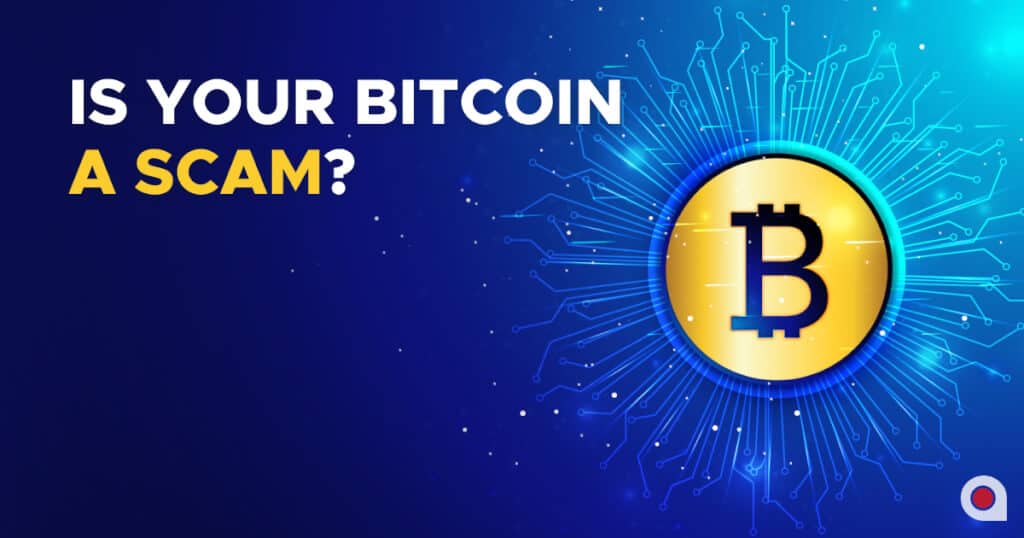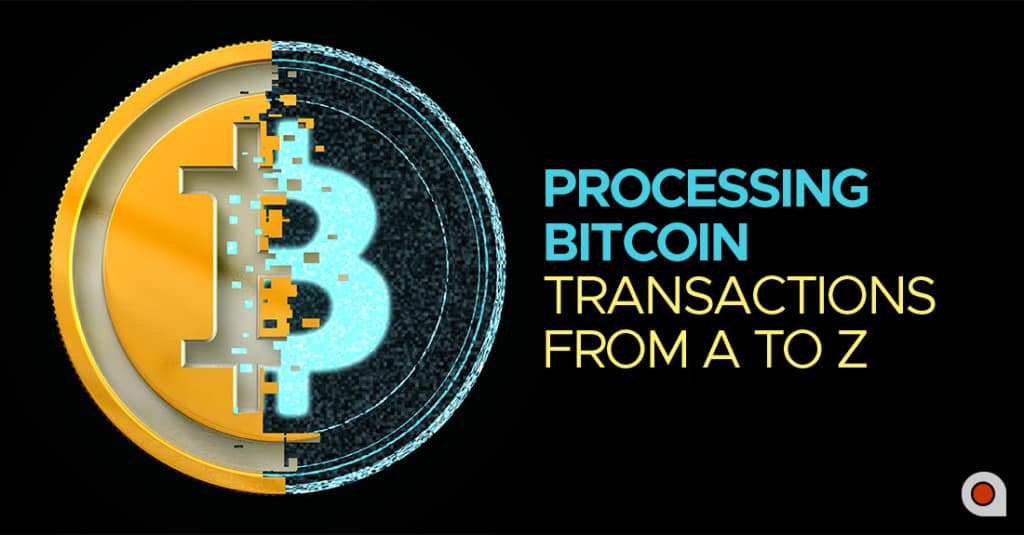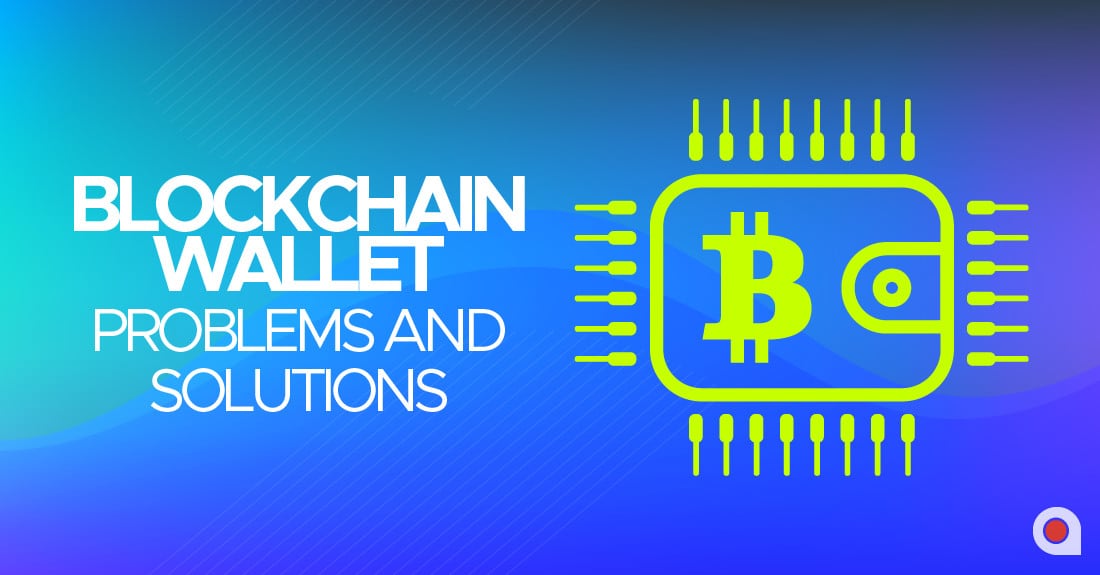
Blockchain has brought the world into the digital age of trading and introduced a revolutionary way of redistributing wealth. Cryptocurrencies are an incredible achievement, and completely deserve all the praise and recognition they have been getting in the last couple of years. However, there is also a lot of misinformation about cryptocurrencies. That is why we are going to go over the basics and re-explain everything properly — starting with the concept of the blockchain bitcoin wallet.
A Four-Paragraph Introduction to Blockchain
Despite being an almost daily topic in the news over the last couple of years, to the casual public, blockchain is still a mystery. Even those who do look up the definition usually end up more confused. The existing explanations are convoluted, and often require preliminary technical knowledge. So let’s try to keep things simple for a change.
Blockchain is a ledger — a digital journal that keeps records of who owns what. If you were to remove all the high-tech pish-posh, you’d end up with records like “Jane received 2 BTC on June 13, 2018. Jane has 15 BTC” and “Max spent 2 BTC on July 02, 2018. Max has 0.5 BTC.” Those who take up Accounting 101 manage more elaborate ledgers.
However, the blockchain is not a common ledger. It is not built on any sort of centralized authority. There is no “master copy” of the blockchain — each computer on the network automatically syncs with the others and informs them of changes that have been made.
EXAMPLE
If I were to transfer my friend 2 BTC right now, I’d update the copy of the blockchain on my PC with a new record (“Damian spent 2 BTC”), then another record (“Gary received 2 BTC”). It would then push the same record to the other copies. They’d spread the change further, and in an hour, the whole internet would know that there was a transaction of 2 BTC from one address to another.
Of course, it is more complicated than that. There is the whole chained blocks system that makes sure blockchain is not tampered with. There is a transaction pool, along with transfer confirmations, miners, nodes, and many other complexities that would require a separate article to explain. But for now, let’s talk about something a bit more practical and down-to-earth: the way Bitcoins are actually stored on the blockchain.
NOTE: Being a ledger is not the only function of the blockchain. Because it is incorruptible, blockchain is perfect for notary purposes, i.e., smart contracts.
How Blockchain Bitcoin Wallet Works
Bitcoin is not, technically, a “coin.” It does not exist at all in the physical world. Even its digital representation is just an abstract unit on the blockchain: a counter, a token. You can’t take Bitcoins off the blockchain, since they have no meaning outside of it. You can only exchange them between accounts — or, as we call them, wallets. Each wallet has two attributes: a private key and a public key.
A private key, also known as xPriv, is randomly generated when you create a wallet. It is used to manage the funds in the wallet(for example, to send your Bitcoins to another user).
Example of a private key:
5HueCGU8rMjxEXxiPuD5BDku4MkFqeZyd4dZ1jvhTVqvbTLvyTJ
A public key, also known as xPub, is mathematically derived from the private key using Elliptic curve point multiplication. It is used to monitor the wallet (for example, to see how much Bitcoin it is currently storing). It also allows other people to make payments to your account.
Example of a public key:
02d0de0aaeaefad02b8bdc8a01a1b8b11c696bd3d66a2c5f10780d95b7df42645c
NOTE: There are many ways of presenting keys. In this example, we are using the more widely accepted Wallet Import Format (WIF). However, there are also decimal and hexadecimal formats. They are less convenient to use, but some old-school blockchain users like them anyway.
Decimal format example: 5500171714335001507730457227127633683517613019341760098818554179534751705629
Hexadecimal format example: 0C28FCA386C7A227600B2FE50B7CAE11EC86D3BF1FBE471BE89827E19D72AA1D
At some point, the Blockchain community recognized a problem with public keys. They are 60+ symbols long, completely unreadable for humans, and not foolproof. They also have confusing symbol pairs, like “l” and “1.” That’s why the Bitcoin community invented addresses — shorter representations of public keys that are void of those issues.
Blockchain Address
A blockchain address is a RIPEMD-160 hash (mathematical derivation) of an SHA-256 hash of the public key. It is used to transfer payments to the blockchain wallet.
Example of a Bitcoin address: 1GAehh7TsJAHuUAeKZcXf5CnwuGuGgyX2S

You can’t get a public key out of an address or a private key out of a public key. It is mathematically impossible.
Addresses and public keys are relatively interchangeable. Both allow the same features, except that an address can only be used once. There are many reasons for this, mostly related to privacy protection; but for now, let’s just accept it as is.
Certain applications and hardware automate the address-generation process and allow for different additional features. So when we say Blockchain Bitcoin Wallet, we usually mean those devices and apps.
Blockchain Offline Wallets
Blockchain needs the internet to process payments. However, internet connections are also an inherent risk, especially if large sums of money are involved. It is considered more secure to keep keys and addresses offline, and connect them to the internet only when absolutely necessary.
This method of storage is called “an offline wallet.” There are three types of offline wallets, each with its own niche and use case.
Paper Wallets

A paper wallet is the most primitive solution for blockchain wallet management. It is literally just a piece of paper with a Bitcoin address and a private key on the other side.
Advantages
There are several advantages of such a primitive design, paper wallets are:
- Reliable. You don’t need to charge them or take care of them in any other way. At most, you should laminate make sure your wallet will withstand the test of time.
- Unhackable. Despite what Hollywood would have you believe, no one can hack into a bank vault. Or a fireproof case. Or your lingerie drawer. Wherever you decide to keep your paper wallet, you won’t have to worry about hackers getting access to it.
Disadvantages
Of course, there are also drawbacks as paper wallets:
- Are open. While hackers won’t be able to get your wallet, regular thieves just might. Since the access keys are just printed on the wallet without any sort of protection, nothing stops the thieves from just accessing the wallet and stealing the money. Of course, you can encrypt the keys before printing, but then you’d have to somehow remember the cipher and the encryption method.
- Can only be used once. You should not reuse blockchain addresses — this is a huge privacy risk. There is no way to regenerate the address on a paper wallet, as it is actually printed on it. This means that you will be able to transfer Bitcoin to it only once, and won’t be able to top it up at a later date. You’d have to print out another wallet with a new address each time you used it.
- Aren’t recoverable. If you lose it, it’s gone — with all your money. There’s no way to restore access to a blockchain wallet if you do not remember the private key. Make a backup, and then make sure it’s well-hidden.
All of this severely limits the usability of paper wallets. They are secure and rather elegant, but at the same time, not particularly useful for day-to-day payments. Because of this, the most popular use-case for paper wallets is long-term investments.
How to make a paper wallet
There are several resources that allow you to create a paper wallet. Personally, I use WalletGenerator, but you can also use Bitcoin Paper Wallet, BitAddress, or any other similar service.
To create a paper wallet with WalletGenerator:
1. Go to WalletGenerator.net

2. Move your mouse around until the progress bar to the right fills up. The website will periodically read the positions of your mouse cursor (little green dots on the screenshot) and use them to generate a truly random private key.

3. Click Print to print your wallet.
 Now you just have to purchase Bitcoin, transfer it to your wallet, and place the wallet in secure storage until you decide to cash in your investment. Don’t forget to make a backup and store it somewhere safe, too.
Now you just have to purchase Bitcoin, transfer it to your wallet, and place the wallet in secure storage until you decide to cash in your investment. Don’t forget to make a backup and store it somewhere safe, too.
FUN FACT. The Winklevoss Brothers cut up their private keys for 10,000 BTC into several pieces and store them at different locations around the country. It’s a neat solution, and if your BTC fortune can justify the overhead, you should do it, too.
Hardware Wallets
Paper wallets have one severe drawback when it comes to usability. Hardware blockchain Bitcoin & Ether wallet has been designed to solve this issue without compromising security. Whether or not they have succeeded is up for debate.
 Hardware blockchain Bitcoin & Ether wallet is a special device built specifically for blockchain wallet management. It does not connect to the internet on its own, but instead authorizes transactions made on computers or mobile devices. All addresses and keys are managed directly by the wallet; the user needs only provide a PIN to unlock the device.
Hardware blockchain Bitcoin & Ether wallet is a special device built specifically for blockchain wallet management. It does not connect to the internet on its own, but instead authorizes transactions made on computers or mobile devices. All addresses and keys are managed directly by the wallet; the user needs only provide a PIN to unlock the device.
Advantages
This solution has quite a lot going for it as hardware blockchain Bitcoin & Ether wallet is:
- Unhackable. Hardware wallets were created to do only one thing: manage blockchain keys and addresses. This allows wallet designers to create 100% locked-down systems with zero vulnerabilities, then release software updates if some pop up anyway.
- Closed. Even if someone steals your wallet, they won’t be able to get your money. Of course, you won’t be able to, either (see below for a workaround).
- Relatively easy to use. Using hardware wallets is as easy as operating an ATM. You just need to remember your PIN and know your way about the interface — everything else is done for you.
Disadvantages
But there are downsides, too, hardware blockchain Bitcoin & Ether wallet:
- Can be tampered with. The seller or manufacturer of a wallet can install malicious hardware (or software) As, and, ultimately, your money. Which is why you should only buy reputable wallets, and even then, never buy used ones.
- Is non-recoverable. Once again, if you lose the wallet, it’s gone. The same thing happens if you forget the PIN — unless you get stupid lucky like Mike Frauenfelder. So keep a backup of your private key.
- Is a separate device. You have to carry and keep track of your wallet, which is not ideal in a world where we have enough wearable and portable tech already.
- Is downright expensive. A hardware blockchain Bitcoin & Ether wallet will run you around $100. Compared to the $0 cost of other wallet types, it’s a serious investment. Unless you are a power user with thousands of USD in Bitcoin, it just might not seem worth it.
At the end of the day, hardware wallets are not the most usable or popular. They do provide a stellar level of security, but also introduce some unique risks and inconveniences. They are most commonly used to manage short-term investments, as well as spending accounts or accounts with lots of traffic.
What Are the Best Hardware Wallets?
There are many hardware wallets on the market, and sometimes, it’s hard to choose. The situation isn’t improved by populistic statements from influencers like John McAfee pushing downright unsafe products.
That’s why you should stick to tried and true offerings — at least until you know enough to decide for yourself.
The Best Hardware Wallets for Newbies
- Trezor ONE/Trezor Model T. An open-sourced solution with a large online community of peer reviewers. This is both a blessing and a curse. While all vulnerabilities get found out and fixed in a matter of days, they also get publicized. So, if you ignore a software update, the danger to your wallet increases exponentially.
- Ledger Nano S. A closed-source wallet with bank-grade security hardware. Ledger also has a large community, but it does not allow for peer reviews of their architecture or code. The vulnerabilities are quickly patched up, and rarely go public; and yet the development team is still relatively small, and there is always the risk of something going under the radar.
- Ledger Blue. A high-tech wallet with a touchscreen, Bluetooth, 2FA authentication, and other advanced features. The price is astronomical, and all points about Nano S still apply, but proper smartphone support is worth considering.
- PiTrezor. A port of Trezor wallet code to RaspberryPi Zero — a DIY computer board. It’s a good option if you do not trust Trezor hardware and want an absolutely secure solution. It’s also a good summer project for DIY-savvy people.
- KeepKey. This hardware wallet offers stress-free security, straightforward backup and recovery, sleek and simple display, and quickly exchange cryptocurrencies via the ShapeShift integration.
Personally, I recommend the original Trezor ONE for those who are only getting their feet wet. A $79 price tag doesn’t sound quite as ridiculous as the $150 for Ledger Nano S or Model T, while the functionality remains relatively the same. However, if you are of the buy-it-for-life mentality, the bells and whistles of the next-gen wallets are completely worth it.
Software Wallets
Most problems involving hardware wallets come from the fact that they are separate devices that require a computer or smartphone to function properly. However, what if we used actual computers and smartphones instead?
 Software wallets actually appeared before hardware wallets, back when no one really believed in Bitcoin viability. The original community, being privacy nerds, didn’t like them that much and introduced hardware solutions, but the majority of modern users prefer apps due to their convenience.
Software wallets actually appeared before hardware wallets, back when no one really believed in Bitcoin viability. The original community, being privacy nerds, didn’t like them that much and introduced hardware solutions, but the majority of modern users prefer apps due to their convenience.
Advantages
And there are good reasons for that, Software wallets are:
- Free. You don’t need to buy a separate device to use them. In fact, you don’t even have to buy an app — all wallets worth their salt are open-source and free to use.
- Always with you. If you are making payments from your PC or laptop, you can just install your wallet on them. And if you are a traveler, you can use your smartphone. The key point is, your software wallet can always be ready for you to use.
- Easy to use. In fact, they are even more user-friendly than hardware wallets due to larger screens, clearer interface, and more consistent design guidelines overall.
Disadvantages
And yet, it’s not all sunshine and rainbows as software wallets:
- Are only as secure as your device. Unlike hardware wallets, which protect all interfaces themselves, software wallets rely on your hardware and OS. Security for such gargantuan projects can be a little spotty — just check out the list of Android, Windows and Mac OS vulnerabilities.
- Can have backdoors. Just like hardware wallets, software wallets can contain vulnerabilities and malicious tools left by the developers to steal your money. Since making a software wallet is much easier than making a hardware one, there are many more scammers in this area. Especially dangerous are closed-source wallets, since they cannot be peer-reviewed.
- Depend on the developers’ support. Once again, it’s relatively obvious, but if the wallet developer abandons a project, you are in trouble. You’ll have to switch to a different solution ASAP, which is often inconvenient. So make sure to pick wallets with enough of a following to warrant continuous development.
- Are non-recoverable. Once again, make sure to write down your private key and keep it safe. If your device fails, it will be the only way to save your money.
Despite all the cons, software wallets are becoming more and more popular due to their convenience and low entrance cost. Even old-school Bitcoin veterans are slowly adapting them to manage emergency accounts.
What Is the Best Software Blockchain Bitcoin Wallet?
There are dozens, if not hundreds, of software wallets for every major operating system. However, as with hardware wallets, you should stick to the well-liked and supported solutions.
- Bitcoin Core (Windows, MacOS, Linux). The original blockchain Bitcoin wallet. Requires quite a monstrous amount of storage space (145+ gigabytes). It actually comes with the complete records of the blockchain since 2008. It is open-source, completely secure, and will run on an eight-year-old laptop; but that storage requirement may be a problem.
- Exodus (Windows, MacOS, Linux). The modern blockchain Bitcoin wallet. It’s a “thin” client, which means it stores the blockchain on its servers and does not require a lot of storage. On the other hand, it is a bit less secure as a solution.
- Bitcoin Wallet (Android). An efficient and powerful app that supports simplified validation. Blockchain.info and BTCX use the same codebase, but lock you down in their services.
- Coin.Space (iOS, Android). This is a “thin” client with centralized payment validation. Unfortunately, that’s the only way you can operate a blockchain Bitcoin wallet on a locked-down platform like iOS. Other than that, Coin.Space is robust and rather well-made.
Online Blockchain Bitcoin Wallets
The 21st-century mentality toward software development can be described in a single sentence: “Let’s put it in the cloud.” So it’s not surprising that some blockchain wallet developers decided to follow suit.

Online blockchain Bitcoin wallets are essentially software wallets that are no longer tied to a specific device. They have become quite popular in the last two years, and you could make the case that it’s not all marketing as they:
- Are device-independent. Your devices are not forever and will fail. For example, if your phone loses its charge, you won’t be able to use your software wallet. With online wallets, you can simply pull out another device or ask to use someone’s computer to make a payment. In fact, with some services, you can use literally anything that connects to the internet and has some sort of a keyboard — even a Kindle.
- Are easy to use. They are even more streamlined than some software wallets, since developers can hide the nasty back-end stuff from users.
- Are recoverable. If you have verified your identity with a wallet provider, you can easily restore your access to the lost wallet.
- Offer additional features. Some wallets offer account co-management, transaction verification, push notifications, the ability to buy Bitcoin directly, and other QoL features.
Disadvantages
And yet, despite all of this, online blockchain wallets are not the best solution as they:
- Are in the cloud. This means you own nothing, you are simply given access to “your” coins. If your wallet provider goes down, so does your money — and many providers do not offer any compensation.
- Use a single wallet for all operations. In order to process payments swiftly, online wallets do not provide dedicated wallets for all customers. Instead, all users use the same exact wallet, and the provider interface separates coins between user accounts. “Risky” doesn’t even begin to describe this solution.
- Can have backdoors. Since the majority of online wallets are closed-source, you can never be sure that your money, financial information, and personal data are completely safe. Maybe the project has massive vulnerabilities. Maybe the developer collects your data and sells it to advertising companies. Or maybe it all actually works as intended — but you won’t ever know it.
- Require identity verification. Most online wallets require identity verification before you can use them. This goes against the blockchain philosophy of anonymity and freedom, but such is the price of convenience.
All things considered, online blockchain wallets are not evil — they are just untrustworthy, which is not good in a community built entirely on trust. Most Bitcoin veterans either do not use online wallets at all or use them only for day-to-day payments, while keeping the bulk of their coins elsewhere.
However, veterans are clearly in the minority. According to Coinbase, the most popular online wallet, it has 13 million active accounts. BitInfoCharts has calculated that there are only 22 million active Bitcoin wallets overall. Granted, the data is incomplete, since 13 million users on one exchange would show up as a single wallet in BitInfoCharts data.
What Is the Difference Between Hot and Cold Storage?
Not all online blockchain wallets are made equal. There are two philosophies on how to properly store user data in online financial systems: hot storage and cold storage.
Hot storage means that all your personal and financial data is stored on a server with direct access to the internet. This allows the system to operate much faster since all the data is right there for it to use. It also makes the system extremely vulnerable to attack, since once again, all the data is right there.
Cold storage stores all customer data on a separate isolated server. It’s slower but much more secure — even if hackers gain access to the operating machine, they still won’t be able to access customer data.
You should never use hot storage wallets. It’s just not worth it, especially for the end user. Fortunately, most online wallets have switched to cold storage. But you should still make sure your wallet supports it before creating an account.
What Are Blockchain Vaults?
Vaults are just fancy online wallets for entrepreneurs who manage large amounts of Bitcoin daily. They are more expensive (especially since most wallets are free), and have additional protection features.
For example, if you enabled account protection at Coinbase Vault, your account manager will call you personally to confirm each payment. If you have several users on the account, no transactions will be made until each user confirms them. None of these features are crucial or even necessary, but in the business environment, they are just neat to have.
FUN FACT. There’s also another kind of a cryptocurrency vault. Swiss Crypto Vault is a military grade nuclear-proof bunker that leases storage space to Bitcoin users to keep their keys and other sensitive data. It’s hilariously impractical, but a nice PR stunt.
Why You Should Not Store Your Crypto on Exchanges
Exchanges are basically online wallets with added trading functionality. Since the “wallet” part is not a primary source of income for the company, it often goes neglected by the developers.
Moreover, exchanges use the same single-wallet scheme for managing customer accounts. When an exchange gets scammed (usually via 50% attack), it technically loses its customers’ coins. Of course, most exchanges will swallow the costs and rebuy the coins, but it’s still not an ideal situation.
Also, exchanges have billions in crypto on their accounts, and this makes them priority targets for hackers. An attack on the Coinrail exchange cost its customers $40 million USD. Japan’s Coincheck lost $500 million USD to hackers in January.
At the end of the day, storing coins on an exchange is just an unnecessary risk. At the very least, you should move your coins to a dedicated online wallet. Some exchanges, like Coinbase Pro, actually recommend you do it, and will not charge fees for operation.
What Are the Best Online Wallets?
When it comes to online wallets, reputation and experience is the only measure you should look at. Otherwise, you will get swarmed with hundreds of shady solutions that claim advanced features and namedrop celebrities, only to disappear with your money later. Personally, I can recommend two options:
- CoinPayments is a comprehensive platform offering storage and payment support for bitcoin and 1,200+ other cryptocurrencies.
- Coinbase. The most popular online blockchain Bitcoin wallet. Has operated in San Francisco since 2011, and is a sister exchange to Coinbase Pro. Most Western users consider it the industry standard.
- Blockchain Wallet. Another relatively old service operating since 2011. It also maintains a large customer base but does not offer as many features and integrations as Coinbase.
You can safely go with either service. While they are not perfect, and there will be small issues, slow transactions, and other problems related to server load, for the most part, they work great. And while smaller unknown wallets like Strongcoin might be faster, they are not as secure as the industry leaders.
Best Blockchain Wallets For Other Cryptocurrencies
Bitcoin is not all there is to crypto. There are other currencies, coins, and tokens: Bitcoin Cash, Ripple, Ethereum, EOS, etc. Most of these are not based on Bitcoin itself, and require special software wallets due to differences in architecture.
IMPORTANT. This problem is specific to software wallets. Hardware wallets, Coinbase, and Blockchain Wallet already support all popular cryptocurrencies.
Best Blockchain Wallet Bitcoin Cash
Bitcoin Cash (BCC) is a fork of the actual Bitcoin with increased block size. This supposedly allows the processing of more transactions per second and decreases fees.
Bitcoin’s relationship with Bitcoin Cash is strained due to a massive clash between development philosophies. As of right now, Bitcoin Core developers have refused to support the fork in their official blockchain wallet. Bitcoin Cash is not alone in this situation; other forks, like Bitcoin Gold, are also getting the cold shoulder.
At the moment, there is no official blockchain wallet Bitcoin Cash, and users have to go to third parties. The most interesting among them is Jaxx. It doesn’t have the pedigree of Bitcoin Core, but it is a blockchain wallet that supports Bitcoin Cash, and it works well on PCs, Android, and iOS.
Best Blockchain Ethereum Wallet
Ethereum is a smart-contract-based distributed computing platform that serves as a basis for many cryptocurrency tokens. It also has its own cryptocurrency, called Ether (ETH).
The Ethereum wallet blockchain (blockchain Ethereum wallet) is only superficially similar to Bitcoin, and cannot be supported by Bitcoin Core or similar wallets. There are such blockchain Bitcoin & Ether wallet examples, i.e., Jaxx and Exodus, but they essentially have two different architectures under the same hood.
That’s why, if you are looking specifically for a blockchain Ethereum wallet, you should get MyEtherWallet. It was developed specifically for ETH, and serves as a codebase for other wallets. This means that it is always the first to support all Ethereum patches, updates, and features. It can also work directly in your browser, which is kind of cool.
NOTE: ETH is also supported by all ERC-20-compatible wallets.
What Is the Best Blockchain Bitcoin Wallet?
There is no “best” when it comes to cryptocurrency. Different approaches offer different advantages and risks. All you can do is choose the compromise that suits you best.
When it comes to casual cryptocurrency use, the best way would be a “combined arms” approach:
- Store the majority of your crypto portfolio in a paper wallet in a bank cell. These are your long-term investments.
- Store 20% in a hardware wallet in Bitcoin. Keep the wallet in your house, or somewhere within direct reach. This is an emergency fund you can quickly sell off.
- Store your monthly spending budget on a mobile or online wallet. If you do not regularly spend cryptocurrency, feel free to skip this.
This approach allows you to enjoy all the benefits of paper, hardware, and online wallets with minimal downsides. However, if it does not work for you, feel free to tweak it or make your own. After all, freedom is an essential right, and cryptocurrency is proof of it.

 Crypto-Investor Day: New Strategies for Security Tokenization
Crypto-Investor Day: New Strategies for Security Tokenization
 Is Your Bitcoin a Scam?
Is Your Bitcoin a Scam?
 Understanding Bitcoin and the Bitcoin Transaction Chain
Understanding Bitcoin and the Bitcoin Transaction Chain
 What to Do If the Blockchain Wallet Is Not Working?
What to Do If the Blockchain Wallet Is Not Working?
